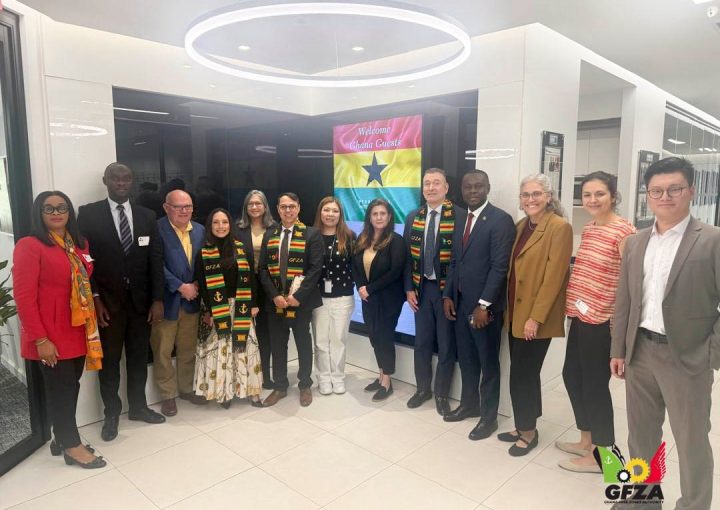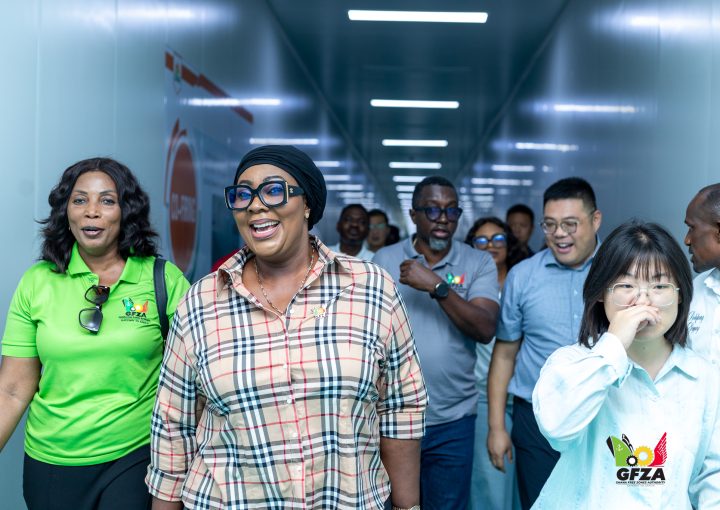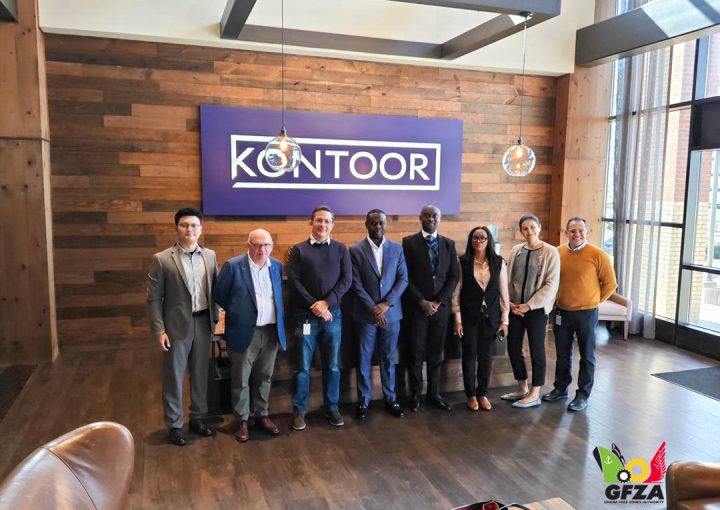
The Ghana Free Zones Authority (GFZA) was established on 31st August, 1995.
— Welcome to Ghana Free Zones Authority
Where we are driven by economic diplomacy, which is in tandem with the President's vision for Industrialization, Job Creation, and Economic Growth. Established by an Act of Parliament, The Free Zone Act, 1995 (Act 504), we are focused on establishing free zones in Ghana to promote economic development.
Additionally, our mandate is to regulate activities within free zones and for related purposes. The Ghana Free Zones Authority is governed by a nine-member Board chaired by the Minister of Trade and Industry.

Chief Executive Officer
Steps To Begin
You are invited to come to Ghana to utilize our effective & abundant labor force as a source of competitive advantage as you explore and develop larger markets for your goods and services.
Priority Areas

Agro Processing
The agro-food processing sector also has vast opportunities for investors…

Oil & Gas
The sector has many opportunities for companies in the oil and gas space…

Floriculture
Opportunities exist for the exportation of cut tropical flowers for export…

Textile/Apparel
Manufacturing
Ghana has benefited from the African Growth and Opportunity Act (AGOA) initiative…

Information and Communication Technology
The focus of this sector is in Business Process Outsourcing, where back-office…

Metal
Fabrication
The metal fabrication sub-sector is one of the sectors with significant growth potentials…

Pharmaceuticals
The current trend for low-cost and effective drugs creates an excellent opportunity…

Jewelry Production
The jewelry sector is one of the potential areas for investment. Ghana’s position…

Ethnic Beauty Products
The ethnic beauty products industry is moving into the phase of a viable exporter…

Light Industry &
Assembling Plant
The economy of Ghana is developing, and the emphasis on small-scale agriculture is shifting…

Seafood
Processing
The seafood processing sub-sector is emerging as one of the attractive sectors for investment…
Partner Agencies & Stakeholders
As a government agency, we work with all government agencies in Ghana. Below are some of the agencies we work with the most.










Performance In-Focus
Featured Enterprises
The Ghana Free Zone Advantage
The unique advantage Ghana possesses coupled with the generous incentives and the efficient services provided by the GFZA makes the business environment more than ready to provide maximum returns on investment.
| Stable Democratic Climate | ✔ |
| Ease of Doing Business | ✔ |
| Accessibility | ✔ |
| Competitive & Educated Work Force | ✔ |
| Strong Resource Pool | ✔ |
| World Ranking | ✔ |
Incentives
To attract investors into the Free Zones Scheme and to create a viable and sustainable business environment, the GFZA offers extensive and generous incentives to potential investors interested in developing and operating free zone enclaves and single-factory free zones in Ghana.

Incentives
Monetary Incentives
The monetary incentives offered include;
100% exemption from payment of direct and indirect duties and levies on all imports for production and exports from free zones.
100% exemption from payment of income tax on profits for 10 years which will not exceed 15 per cent thereafter.
Total exemption from payment of withholding taxes from dividends arising out of Free Zones investments.
Relief from double taxation for foreign investors and employees where Ghana has a double taxation agreement with the country of the investors or employees.

Incentives
Non-Monetary Incentives
The non-monetary incentives offered include;
No import licensing requirements and minimal customs formalities. Also, Free Zones investments are also guaranteed against nationalization and expropriation.
100% ownership of shares by any investor – foreign or national – in a Free Zones Enterprise is allowed. Also, Free Zones Investors are permitted to operate foreign currency accounts with banks in Ghana.
There are no conditions or restrictions on repatriation of dividends or net profit; payments for foreign loan servicing; payments of fees and charges for technology transfer agreements and remittance of proceeds from sale of any interest in a Free Zones investment.
At least 70% of annual production of goods and services of Free Zones Enterprises must be exported; consequently up to 30% of annual production of goods and services of a free zone enterprise are authorized for sale in the local market.

Videos
All Videos

2:19

1:35

1:46

1:46

1:42

1:39

2:43

2:26

3:35

2:38

2:30

2:00

2:42

1:57

2:10

3:37

6:33

3:17

3:36

6:02

4:57

4:36

4:24
Testimonials
Our Ghanaian operation was the first of our network of production sites and remains the biggest. We have over 3,500 people in Ghana making us one of the biggest private sector employers in the country. Working with Ghana Free Zones gave us the necessary push and incentives we needed to get where we are in Ghana.
BlueSkies
Working with GFZA has really relieved some of the pressure we would normally feel. Their monetary and non-monetary incentives are really impressive and seductive. We're really amazed at how smooth the entire process was. Thank you.
OLAM Manufacturing Ltd
Schedule An Appointment
We'd love to sit with you and discuss any questions you may have.




